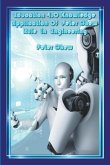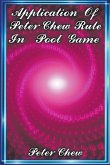Peter Chew's Rule for the solution of triangles emerges as a valuable asset in the realm of mathematics teaching and learning. This rule aims to streamline and simplify existing methods, thereby enhancing comprehension, especially in scenarios akin to the challenges posed by the COVID-19 pandemic. The application of Peter Chew's Rule holds particular promise in Astronomical Engineering problems, where intricate calculations are the norm. This book delves into the significance of Peter Chew's Rule in the context of Astronomical Engineering, emphasizing its potential to revolutionize computations and aligns with the timeless wisdom encapsulated in Albert Einstein's famous quote: "Everything should be made as simple as possible, but not simpler.". The core objective of Peter Chew's Rule is to provide a straightforward approach for solving triangles. This mathematical tool not only facilitates ease of understanding but also acts as a benchmark for assessing and comparing existing methods. The inherent simplicity of the rule makes it an invaluable aid in educational settings, offering both students and educators a practical means to navigate mathematical intricacies. Astronomical Engineering involves complex calculations related to celestial bodies, orbits, and distances. Incorporating Peter Chew's Rule into this field presents a unique opportunity to simplify these computations. By leveraging this rule, Astronomical Engineers can streamline their processes, making them more accessible to both seasoned professionals and aspiring learners. Applying this rule to Astronomical Engineering problems adheres to the principle of making complex calculations more manageable, ensuring that professionals in the field can focus on the essence of their work rather than getting entangled in intricate mathematical details. Incorporating Peter Chew's Rule into mathematics education, particularly in the context of Astronomical Engineering, can significantly enhance the learning experience. Students grappling with complex astronomical calculations can benefit from a simplified approach, fostering a deeper understanding of the subject matter. Educators can utilize this rule as a pedagogical tool to bridge the gap between theory and application, making mathematical concepts more tangible and relatable. The application of Peter Chew's Rule for the solution of triangles holds immense potential in the field of Astronomical Engineering. Its ability to simplify complex calculations aligns with the timeless wisdom of Einstein and Newton, emphasizing the importance of simplicity. As we navigate the challenges of the future, having accessible and efficient mathematical tools becomes increasingly vital. Peter Chew's Rule stands as a beacon in this regard, offering a pathway to make Astronomical Engineering calculations more manageable, comprehensible, and ultimately, advancing our understanding of the cosmos.

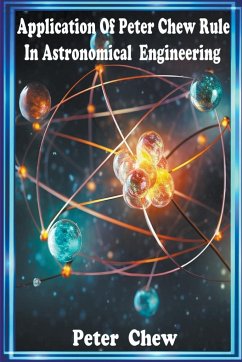
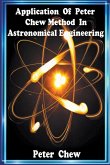
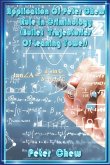
![Application Of Peter Chew Rule In Engineering [2nd Edition] Application Of Peter Chew Rule In Engineering [2nd Edition]](https://bilder.buecher.de/produkte/68/68690/68690405m.jpg)
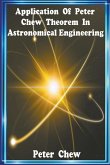
![Application Of Peter Chew Rule In Engineering [3rd Edition] Application Of Peter Chew Rule In Engineering [3rd Edition]](https://bilder.buecher.de/produkte/70/70133/70133768m.jpg)
